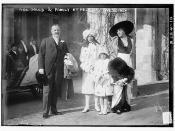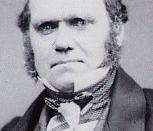Although man had experienced difficulty swallowing the conclusions of the Copernican revolution, he nonetheless could cling to the belief that his spirit represented the most refined product of creation. His body may not reside at the focal point of the physical universe, but certainly his soul occupied the center of a greater, spiritual existence. At least until 1859.
With the publication of The Origin of Species, Charles Darwin questioned the extent of man's distinction from the rest of creation. The ensuing tremors shook the tenets of anthropocentrism; man could no longer claim to be the apple of God's eye (especially if, as Nietzsche had insisted, "God is Dead" (Nietzsche 203)). Displaced and disempowered, man was left to pick up the pieces of his fractured self--pieces of a soul which had fragmented under the scrutiny of psychoanalysis and which would, by 1929, evaporate altogether.
"How fleeting are the wishes and efforts of man! how short his time!" (203) exclaims Darwin in The Origin of Species.
Sir Charles Lyell had earlier argued for an earth much older than theologians believed, and Darwin hammers Lyell's point home. To the mind of "feeble man," the "extreme slowness" (Darwin 61) with which natural selection acts is incomprehensible. The reader is left to wonder: how can man be the measure of all things when, according to Darwin, the scope of his existence is dwarfed by the immeasureable vastness of geological time? Darwin continues to assail man's self-image by challenging the notion that he (man) embodies nature's perfection. If the reader agrees with Darwin that "Natural selection will not necessarily lead to absolute perfection" (94), then he must conclude that man is not necessarily a perfect organism.
Moreover, if man accepts that he is not now perfect, and that natural selection is taking no pains to craft...


